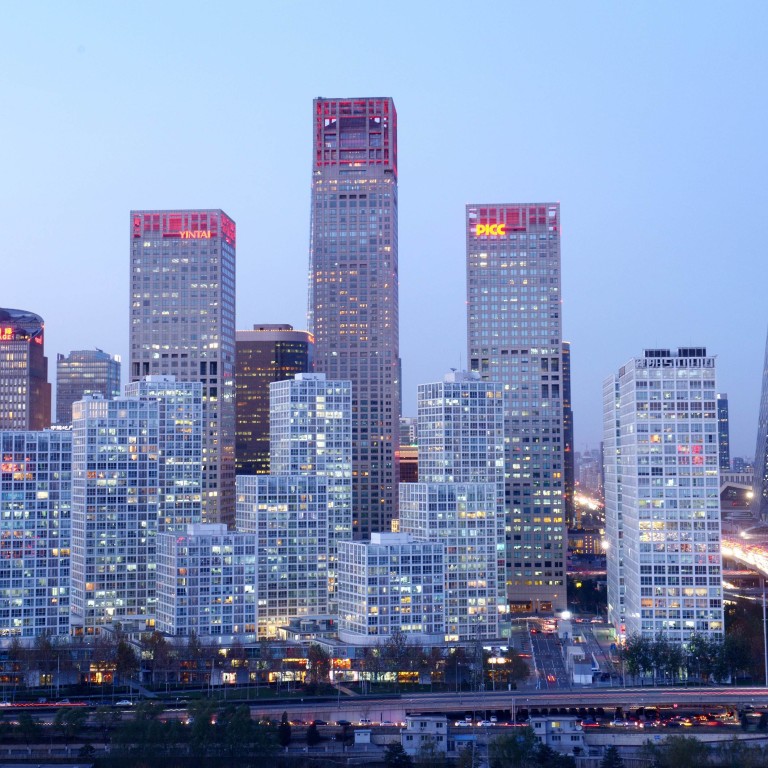
Land prices in Beijing cool despite government’s best efforts
The market will move ahead on its own accord even if the government tries to exert influence
On August 20, Beijing sold a residential plot in one of the city's two central business districts for 7.46 billion yuan (HK$9.38 billion), or almost 100,000 yuan per square metre of gross floor area, both record sums.
But, on August 25, the government reposted for sale another plot, in a luxury residential area, cutting the minimum required bid to 4.23 billion yuan.
An auction for the site about a month earlier, with a minimum bid of 4.6 billion yuan, failed to attract any bidders.
The two incidents send a mixed message. Some industry experts reckon the auction of the site in the financial district was manipulated to guide up land prices at a time when a cooling property market across the country has weighed on the fiscal revenue of local governments.
The land market correction in the second half will exceed the extent seen in the first half
The winning bidder happens to be a state firm controlled by Beijing's Xicheng district government, which also owns the land parcel.
An auction for the same plot was suspended in February to take some heat off the then-frenzied land market.
When the market is cooling, China's local governments often put up for sale sites that are likely to fetch high prices. When there are concerns about overheating, they stop.
While the government may have many options at its disposal to influence land prices, the market will move ahead in its own direction.
For the rest of this year, however, cities that rely heavily on land sale premiums are likely to experience falling land prices as their governments attempt to keep transaction volumes and aggregate revenue up.
Data from property consultancy Centaline showed that until last week, the mainland's 20 major developers combined had spent 184.2 billion yuan on land this year, down 37 per cent from the same period last year.
The budget for the next few months will be even tighter, most developers, such as Evergrande, Longfor Properties and Country Garden, said in their interim reports. China Vanke, the biggest developer by sales, said it was in no rush to replenish its land reserves, with prices too high.
"The correction in the land market seriously lagged behind that in the housing market in the first half," Vanke board secretary Tan Huajie said.
Data from the Ministry of Land and Resources showed the average land price in 105 major cities in the April-June period fell year on year for the first time after rises in the previous six quarters.
Quarter on quarter, the average land price gained 1.36 per cent, less than the rise of 1.89 per cent in the first three months.
The average price of land for residential use rose 1.45 per cent from the prior quarter to 5,214 yuan per square metre.
Compared with a year earlier, it gained 9.14 per cent, less than the 9.52 per cent gain in the March quarter.
"There is no doubt that the land market correction in the second half will exceed the extent seen in the first half, whatever the governments and other sellers think and do," Tan said.
"They can hold on to prices, but transaction volumes will slide. Or if they compromise on prices, then land sales volumes will probably be sustained."

